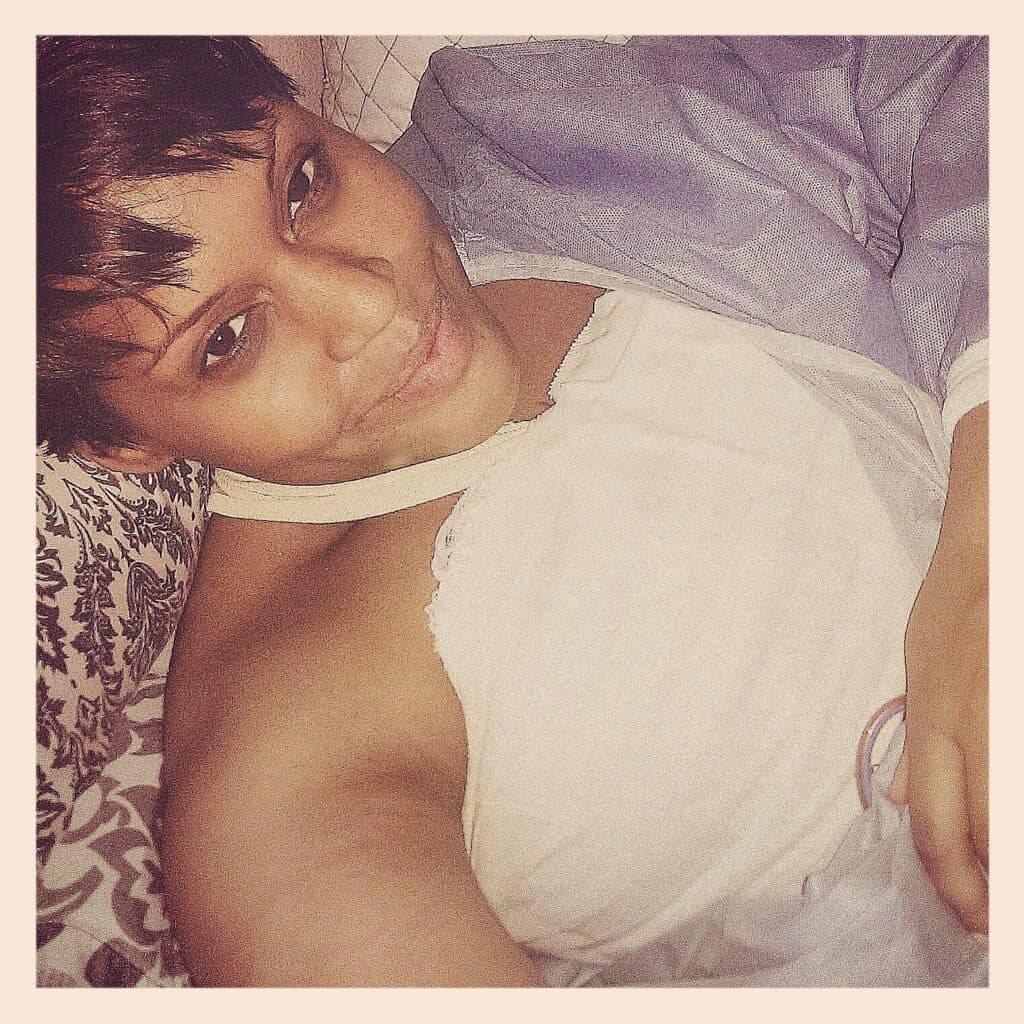
We regret to inform you that Kamesha passed away in 2022.
This is Kamesha Miles’ story in her own words.
When I was 29 years old, I discovered that the nipple on my right breast was inverted. After going through testing, I was diagnosed with stage III ER+ invasive breast cancer.
When I heard the words “breast cancer,” my body went numb, and I couldn’t hear anything else. Coming to terms with breast cancer at that age, I knew my life would change forever. After completing six months of chemotherapy, 25 rounds of radiation and four reconstructive surgeries, I finally said, “I am a survivor.”
After completing treatment, I volunteered with Susan G. Komen® and found my calling in helping other women fighting the same journey I had faced. This calling has become my career. I was hired by Komen as a Mission Programs Coordinator and later as Community Programs Manager, Stand for H.E.R.—a Health Equity Revolution, a focused initiative to decrease breast cancer disparities in the Black community by 25 percent, beginning in the U.S. metropolitan areas where inequities are greatest.
I am tired of seeing Black women pass away from this disease at higher rates than white women. I’m committed to removing racism, bias and other barriers to care for individuals and communities experiencing health disparities and ensuring that all people have access to high-quality programs and services to support their breast health.
In July of 2020, I was having trouble breathing so I called my mother. She was concerned because of the COVID-19 pandemic, so she immediately told me to go to the hospital. Upon arrival, they ordered an X-ray and CT scan. The tests found that I had over two liters of fluid in my lungs and a lesion in my right leg. The oncologist on duty told me that cancer had once again returned, and it was stage IV metastatic breast cancer that metastasized to my lungs and bones. A feeling overcame me just as it did when I was 29 years old, after I received my first diagnosis. I cried with my mom on the phone while she was battling with her own health. She wanted to see me but due to COVID-19, we were restricted from seeing one another in person. She was the reason I made it through my first diagnosis, so not having her close was hard.
As 2020 progressed, I would go on to complete 10 rounds of radiation for the lesion in my leg. I had a tube placed in my lung for six months that drained a liter of liquid a day until I underwent surgery to remove the fluid. I also began oral chemotherapy.
This journey has been difficult, but the support of my family and friends gives me the strength I need to move forward. During this time, my niece was battling stage IV breast cancer and my mother was dying from cervical cancer. I finally got to see my mother while she was on life support. Only one person was able to visit her every 24 hours. On my last visit with her, she actually raised her hand and waived at me. She passed the next day, which was in September of 2020.
I continue to fight. Sometimes it comes at a cost. I made the difficult decision not to have children, given I was not in a space to do so. I also had my ovaries removed to reduce the estrogen in my body and to have a fighting chance.
Every day I wake up, I am grateful that I actually wake up. I know I will always be a cancer patient. But this fact does not define me. It refines me. I will continue to fight for Black women to get the care they, and all women, deserve.
Do you have a story you would like to share? https://www.komen.org/share-your-story/ or contact healthequity@komen.org or 469-701-2089.
Statements and opinions expressed are that of the individual and do not express the views or opinions of Susan G. Komen. This information is being provided for educational purposes only and is not to be construed as medical advice. Persons with breast cancer should consult their healthcare provider with specific questions or concerns about their treatment.



